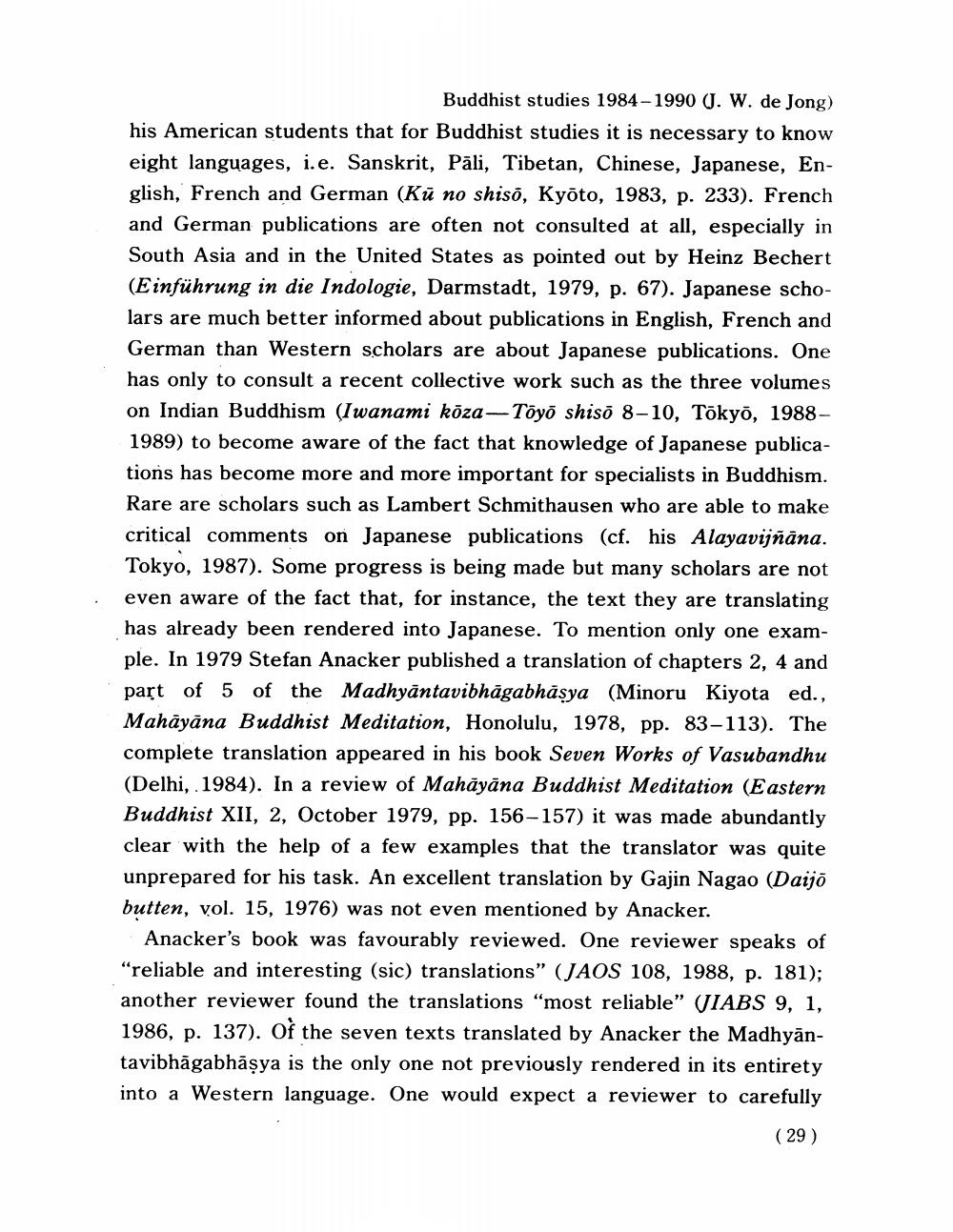________________
Buddhist studies 1984-1990 (J. W. de Jong) his American students that for Buddhist studies it is necessary to know eight languages, i.e. Sanskrit, Pāli, Tibetan, Chinese, Japanese, English, French and German (Kū no shiso, Kyoto, 1983, p. 233). French and German publications are often not consulted at all, especially in South Asia and in the United States as pointed out by Heinz Bechert (Einführung in die Indologie, Darmstadt, 1979, p. 67). Japanese scholars are much better informed about publications in English, French and German than Western scholars are about Japanese publications. One has only to consult a recent collective work such as the three volumes on Indian Buddhism (I wanami köza-Toyo shiso 8-10, Tōkyō, 19881989) to become aware of the fact that knowledge of Japanese publications has become more and more important for specialists in Buddhism. Rare are scholars such as Lambert Schmithausen who are able to make critical comments on Japanese publications (cf. his Alayavijñāna. Tokyo, 1987). Some progress is being made but many scholars are not even aware of the fact that, for instance, the text they are translating has already been rendered into Japanese. To mention only one example. In 1979 Stefan Anacker published a translation of chapters 2, 4 and part of 5 of the Madhyāntavibhāgabhāsya (Minoru Kiyota ed., Mahāyāna Buddhist Meditation, Honolulu, 1978, pp. 83-113). The complete translation appeared in his book Seven Works of Vasubandhu (Delhi, 1984). In a review of Mahāyāna Buddhist Meditation (Eastern Buddhist XII, 2, October 1979, pp. 156-157) it was made abundantly clear with the help of a few examples that the translator was quite unprepared for his task. An excellent translation by Gajin Nagao (Daijo butten, vol. 15, 1976) was not even mentioned by Anacker.
Anacker's book was favourably reviewed. One reviewer speaks of "reliable and interesting (sic) translations" (JAOS 108, 1988, p. 181); another reviewer found the translations "most reliable" (JIABS 9, 1, 1986, p. 137). Of the seven texts translated by Anacker the Madhyāntavibhāgabhāşya is the only one not previously rendered in its entirety into a Western language. One would expect a reviewer to carefully
(29)




